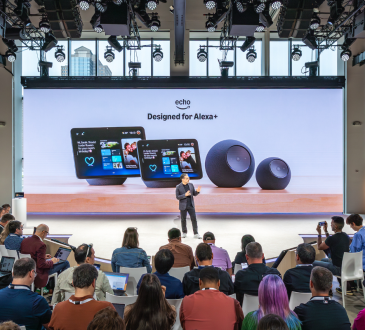AI News of the Today: Innovative Breakthroughs and Stories You Need to Know

Artificial Intelligence (AI) has grown to become an industry force that is defining the impact on our industries, economies, and day-to-day life. From healthcare to banking, education to entertainment, every day brings new breakthroughs—each opening the door to the next wave of opportunities, solving old problems while raising new questions about ethics and governance.
Here is a roundup of the most important AI developments of the day and the stories that are currently relevant in our society, highlighting today’s most important AI innovations and creators that matter.
An Onslaught of AI That Can Generate Things
Generative AI Models Move at Light Speed
The remarkable rise of generative AI models has been one of the highlights of this year. These systems can generate humanlike text, vivid images, realistic audio, and computer code from just a few words of prompting. The next generation of large language models has become much more context-aware and capable of nuanced reasoning, which means they can assist with everything from drafting business plans to supporting academic research.
Applications are broad and revolutionary:
- Creative industries leverage generative AI to produce music scores, storyboard concepts, and even feature-length scripts.
- Marketing companies use AI to produce custom ad copy and visuals in seconds, saving on both production costs and campaign timelines.
- Coders and software engineers utilize AI to identify bugs, write functions, and improve efficiency in large-scale projects.
Healthcare: AI Leading the Charge on New Solutions
Healthcare remains one of the most promising fields for AI. Cutting-edge diagnostic algorithms help physicians accurately identify diseases such as cancer, heart problems, and neurological ailments. AI-enhanced imaging tools can analyze medical images, highlight abnormalities, and recommend treatment courses—often identifying problems earlier than traditional methods.
Beyond diagnostics, AI is transforming:
- Patient care by predicting how individuals might respond to treatments for more personalized medicine.
- Drug development by accelerating discovery processes and reducing costs.
- Hospital management through AI-based scheduling systems and virtual health assistants, which reduce administrative workloads and improve patient experience.
AI in Business and Finance
Businesses worldwide are integrating AI to enhance decision-making, efficiency, and competitiveness.
Key applications include:
- Finance: AI detects fraudulent transactions in real time and uses predictive models to guide trading strategies.
- Customer service: Conversational bots handle routine inquiries, freeing human agents for complex tasks.
- Supply chain management: Machine learning forecasts demand, optimizes inventory, and anticipates disruptions, allowing companies to remain agile in unpredictable markets.
Climate and Environmental Applications
AI is also helping address climate change and safeguard the environment.
- Advanced models process satellite imagery and weather data to forecast weather, monitor deforestation, and track emissions.
- Energy management: AI controls smart grids, balancing supply and demand in real time.
- Renewable energy: Wind and solar farms use AI-driven predictive maintenance to reduce downtime and maintain consistent power output.
These technologies enhance efficiency while reducing environmental impact, contributing to a more sustainable future.
Education and Workforce Transformation
AI’s role in education is expanding, providing both opportunities and challenges.
Education:
- Adaptive learning systems analyze student performance to create personalized lesson plans, allowing teachers to focus on individual needs.
- AI tutors offer 24/7 assistance, helping students master subjects at their own pace.
Workforce:
- AI is automating processes in manufacturing, logistics, and customer service, increasing productivity.
- However, automation raises concerns about job displacement, emphasizing the need for upskilling.
- Governments, schools, and companies are collaborating on training programs to prepare workers for an AI-driven economy.
Ethical and Regulatory Developments
As AI technology grows more powerful, ethics, bias, and regulation have become critical concerns.
Key issues include:
- Algorithmic discrimination
- Data privacy
- Potential misuse in surveillance or disinformation campaigns
Regulatory efforts:
- The European Union AI Act aims to establish clear standards for transparency, accountability, and safety.
- Other nations are drafting policies to encourage innovation while protecting citizens.
- Industry leaders are forming ethical review boards and publishing transparency reports to build public trust.
Computers, Creativity, and AI: A New Frontier
AI is reshaping our understanding of creativity. Artists, musicians, and writers experiment with AI as collaborators, blending human imagination with machine-generated prompts. AI-created music, generative art, and automated storytelling challenge traditional ideas of authorship and originality.
Examples of AI creativity:
- Visual artists create works that merge styles across cultures and historical periods.
- Musicians experiment with algorithms that compose melodies or harmonies, generating new sources of inspiration.
These collaborations demonstrate AI’s potential to augment rather than replace human creativity.
The Road Ahead
Even more revolutionary progress in AI is expected in the coming years. Researchers aim to develop systems capable of language understanding, perception, and decision-making across multiple domains, mirroring human cognition. Advances in quantum computing may further enhance AI’s problem-solving capabilities.
Challenges:
- Balancing innovation with responsible governance.
- Ensuring AI serves humanity rather than controlling it.
- Fostering collaboration among technologists, policymakers, educators, and the public to ensure safe AI development.
Conclusion
AI is no longer a concept of the distant future—it is a dynamic force shaping every aspect of society. From healthcare and business to climate action and art, AI’s impact is profound and far-reaching.
However, like all powerful technologies, AI’s trajectory depends on careful governance and responsible use. The breakthroughs we witness today are not just technological milestones—they are reflections of our collective choices and aspirations. As AI continues to evolve, staying informed and engaged is more important than ever.




